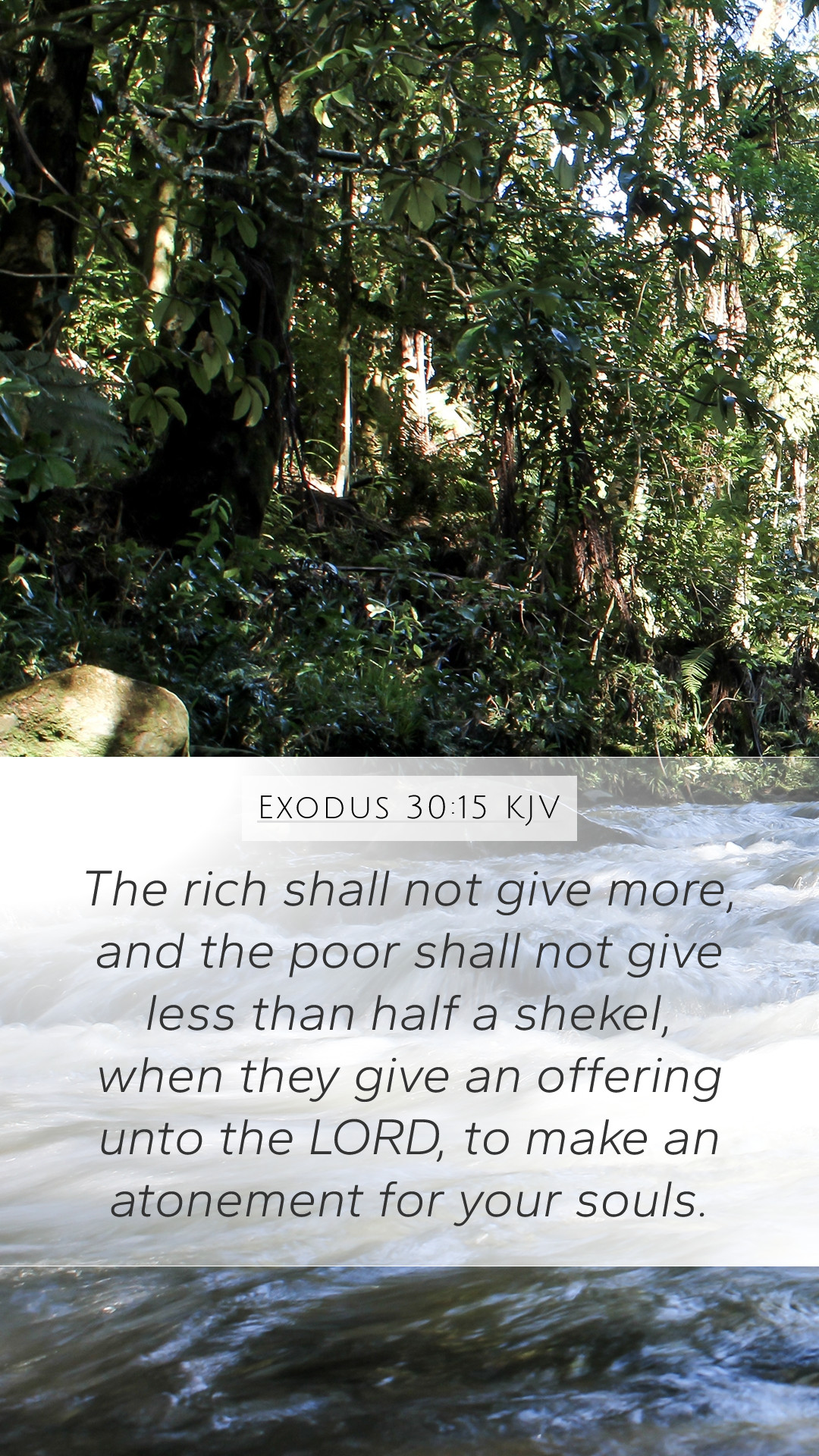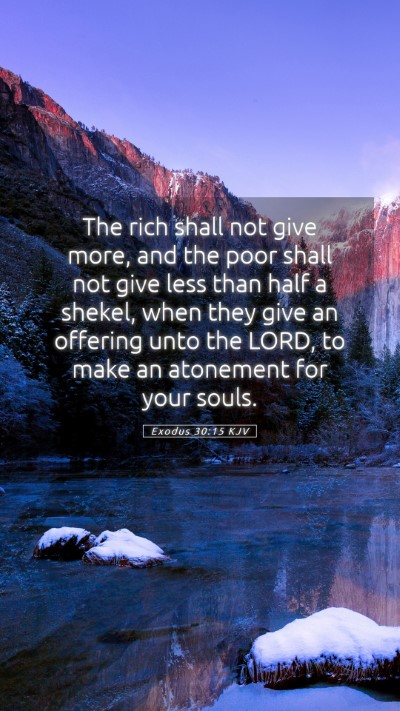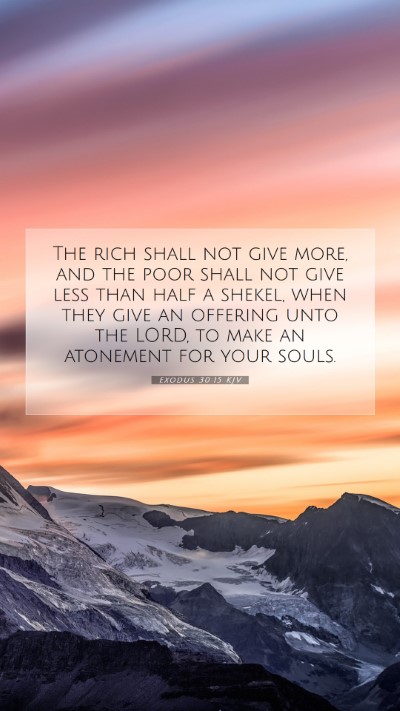Understanding Exodus 30:15
This scripture verse, from the book of Exodus, holds significant meaning within the context of offerings in the Hebrew Bible. The verse states:
"The rich shall not give more, and the poor shall not give less than half a shekel, when they give an offering to the Lord, to make atonement for your lives."
Overview of the Verse
Exodus 30:15 presents a divine mandate regarding the contributions of the people of Israel, emphasizing equality among worshippers through a fixed offering for atonement. This passage illustrates profound theological insights about God's approach to sacrifice, acceptance, and communal responsibility.
Bible Verse Meanings and Interpretations
- Equal Contribution: The stipulation of a fixed amount for both the rich and the poor signifies that regardless of social status, all individuals are equally valuable in the eyes of God.
- Significance of Atonement: The offering is linked directly to the concept of atonement, highlighting the importance of making amends and seeking forgiveness for one’s life before God.
- Spiritual Community: Emphasizing a collective spiritual duty, the verse invites participation from each member of the community, promoting solidarity and shared responsibility.
Bible Verse Commentary Insights
Commentators provide varied insights into this verse:
- Matthew Henry: He highlights the ideas of equality before God, explaining that monetary wealth does not equate to greater value in sacrificial contexts. The atonement offering is seen as a recognition of the blood price required for sin.
- Albert Barnes: Barnes discusses the significance of the half-shekel, interpreting it as a reminder of the cost of redemption. His analysis notes the unchanging need for atonement across generations.
- Adam Clarke: Clarke posits that the equal requirement of the offering serves as a symbol of humanity’s shared sinfulness and need for grace, regardless of personal wealth or status.
Scriptural Context and Application
This verse is situated within the broader narrative of the construction of the Tabernacle and the Israelites’ covenant with God. The offerings collected were used for sacred purposes, further drawing attention to the importance of resources being utilized in service of holiness.
Related Biblical Cross References
- Exodus 30:12 - The command for a census to collect the half-shekel.
- Leviticus 16:21 - The practice of atonement involving the scapegoat.
- 2 Corinthians 8:12 - The principle of giving according to one’s ability in the New Testament.
In-depth Bible Study Insights
This verse encourages deeper exploration into themes of:
- Historical Context: Understanding the socio-economic conditions of ancient Israel can unveil why fixed offerings were critical.
- Biblical Exegesis: Analyzing the original Hebrew terms enriches the understanding of "atonement" and "offering."
- Modern Application: Reflecting on how principles of equality and community apply to contemporary worship practices and church life.
Conclusion
Exodus 30:15 is rich with implications for both ancient and modern readers. It not only illustrates the requirement of sacrifice in the context of Israel's relationship with God but also emphasizes key principles of equality and communal responsibility in worship. The insights from public domain commentaries such as those by Matthew Henry, Albert Barnes, and Adam Clarke provide depth to the understanding of this scripture, reinforcing its relevance for both biblical studies and individual spiritual growth.
Further Study Directions
For those involved in Bible study groups or seeking online Bible study resources, this passage can lead to discussions on:
- How financial contributions play a role in modern faith communities.
- The purpose of offerings in relation to spiritual health and community building.
- Discussions on equality in worship and resource sharing among believers.
Questions for Reflection
As you explore Exodus 30:15, consider the following questions:
- What does it mean for you personally to contribute equally in a spiritual or communal setting?
- How can you apply the principles of atonement and sacrifice in your daily life?
- What can this verse teach us about the nature of God's expectations for His people?


